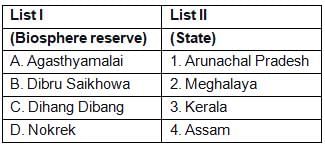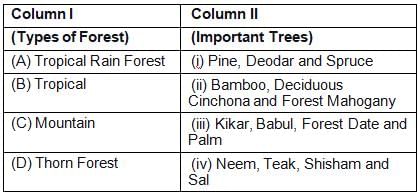Statement-I: Tropical evergreen forests in India are primarily found in warm and humid areas with an annual precipitation of over 200 cm and mean annual temperature above 22°C.
This is correct. Tropical evergreen forests require high rainfall (typically over 200 cm) and warm temperatures (generally above 22°C) throughout the year. Such forests are mainly found in regions like the Western Ghats, parts of the Northeast, and the Andaman and Nicobar Islands in India.
Statement-II:The British colonial rulers in India valued the economic potential of forests, leading to large-scale exploitation and structural changes in forest composition.
This is also correct. The British administration exploited forests extensively for timber and commercial purposes, introducing plantations of commercially valuable species, which led to changes in the natural forest composition and ecological balance.
Relationship between the statements:
Statement-II talks about the colonial exploitation of forests, which is a historical and economic observation and does not explain the ecological and climatic conditions mentioned in Statement-I.
Correct answer: a) Both Statement-I and Statement-II are correct, but Statement-II does not explain Statement-I
















